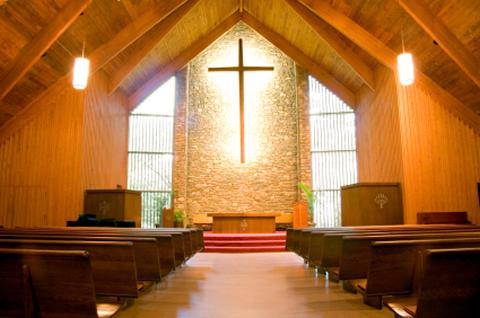
Ekklesia Redefined
The word church – “translated” in our English bibles from the Greek word ekklēsía (Latin, ecclēsia) – has for many centuries been used by the vast majority of both religious and non-religious people alike to describe a building or meeting place for Christians. Even with the increase of revelation and knowledge with regard to the concept of church, and despite the progress many of us have made in understanding this vital concept, the term church is still largely perceived as:
a.A building for public Christian worship
b.A specific Christian denomination or
c.A religious Christian service
This type of misunderstanding is evident by our frequent employment of phrases such as:
“I’m going to church”
“The four walls of the church”
“What church do you attend?”
“What time is church on Sunday?”
“The pastor needs volunteers to help clean the church”
“Church building program” (normally referring to the acquisition and/or development of property)
“The church will be closed on…”
For many years I thought that this was an insignificant misunderstanding and a mote point that was not worth pursuing in any detail, but then I came to realize that this seemingly “insignificant” detail was the very basis or platform for poor theology and misappropriation of Scripture. This article was written to correct this misunderstanding and recalibrate our mindsets to a more accurate understanding of the term ekklesia.
Before we attempt to examine the Greek word ekklesia more closely, it would be beneficial if we first examined the context in which the word was first used in Scripture. There is a fundamental hermeneutical principle called the law of first mention which simply states that when a word, concept or doctrine is first introduced in Scripture, it generally provides the key and lays the foundation for understanding its further development in Scripture. Of course, as with anything else, any principle can be abused. But I think it’s safe to say that when the original occurrence is with Jesus Himself, being the One who actually introduced this secular term into a spiritual discussion, we are well in our right to follow this particular principle in this context.
What Jesus Is Building
13 When Jesus came into the region of Caesarea Philippi, He asked His disciples, saying, “Who do men say that I, the Son of Man, am?” 14 So they said, “Some say John the Baptist, some Elijah, and others Jeremiah or one of the prophets.” 15 He said to them, “But who do you say that I am?” 16 Simon Peter answered and said, “You are the Christ, the Son of the living God.” 17 Jesus answered and said to him, “Blessed are you, Simon Bar-Jonah, for flesh and blood has not revealed this to you, but My Father who is in heaven. 18 And I also say to you that you are Peter, and on this rock I will build My church, and the gates of Hades shall not prevail against it. 19 And I will give you the keys of the kingdom of heaven, and whatever you bind on earth will be bound in heaven, and whatever you loose on earth will be loosed in heaven” (Matt. 16:13-19 NKJV emphasis mine).
After having spent almost three years with His disciples, teaching, training and otherwise reproducing Himself in them, Jesus decides to question them regarding His true identity. Peter responds with the bold affirmation that Jesus is the Christ (or Messiah), the Son of the living God even though the general consensus of the entire populace was that Jesus was no more than a prophet (v.14). It is, therefore, quite apparent to Jesus that Peter did not gain this kind of insight through natural human opinion, reasoning or assessment, but through divine revelation and direct interface with the Father, God. Jesus responds by declaring a blessing upon Simon (Peter) for having received such divine insight and then proceeds to make Peter (as representative of the twelve), as well as his ability to access such a divine frequency, the focal-point, nexus and impetus for His declared intent to engage in a strategic building initiative.
Without taking the time to go into a detailed exegesis of this very familiar yet controversial passage, we shall instead focus our attention on some key points of observation with regard to Jesus’ declaration to build something while in the midst of this dialogue with His disciples as they entered the region of Caesarea Philippi.
1)Jesus is the author of this building initiative. It is His intent, His desire and His design. And He retains complete ownership or lordship over what is being built, as evidenced by the personal pronoun “My” – I will build My church.
2)The declaration “I will build” seems to suggest that the thing being built was not yet in existence, or at the very least had not yet been completed.
3)Jesus clearly distinguishes whatever it is He is building from everything else that others were building. “My church” as a singular, distinct and separate entity from all other churches being built.
4)The word build (Greek – oikodoméō) is indicative of a deliberate process or progression of construction according to a predetermined design unto a completed end.
5)Jesus has fully invested Himself, as well as committed Himself, to the completion and fulfillment of this building initiative as evidenced by His declaration “I will build…” (The Greek verb tense is present continuous, meaning “I will build and continuously keep on building without stopping until the building is completed.”). He is both the author as well as the finisher of the work (Luke 14:28; Heb. 12:2).
6)Whatever is being built is clearly of a spiritual nature since neither Peter, Jesus, the twelve, Peter’s confession, nor the revelation Peter received (the most common interpretations) constituted a physical rock or foundation for the erection of any cathedral or building. There is also no indication that Jesus or any of the apostles built any physical structure or building during their lifetime.
7)That which is being built is forcefully advancing upon the gates of Hades (hell). Gates in Scripture are indicative of power and authority, and provided security or protection for a city – on their territory. When the gates fell, the city usually fell with it. The powers of death or hell shall not overcome, defeat or conquer what is being built, nor stop its powerful advance. The spiritual nature of this conflict again confirms the previous point.
8)The principle of access and authority (keys), as it relates to the Kingdom, is clearly associated with whatever it is Jesus is building.
9)Not only is the thing Jesus is building closely connected to the Kingdom of heaven (again confirming its spiritual nature), but implicit in verse 19 is Jesus’ intent to have what He builds establish heaven’s rule on earth.
Now that we have an accurate context or framework for what Jesus is building, we can now examine in detail the actual word translated as church in our English bibles. Of course, we already know that the Greek word in question is the word ekklēsía (ek-klay-see’-ah). However, we would do well to acknowledge the fact that it is highly unlikely that Jesus ever used this particular Greek word during His discourse in Caesarea Philippi. More likely than not, Jesus spoke to His hearers in their native language of Aramaic or Hebrew, which was then later translated by Matthew or some person(s) unknown (who had access to Matthews record) into the Koine Greek which had already become quite popular during that period.
Basic Etymology
In the Septuagint (the Greek translation of the Hebrew Bible – OT), which was already in existence during the time of Jesus, the word ekklēsía is used over seventy times (one scholar quotes about one hundred times), almost always as a translation of the Hebrew word qāhāl [i](meaning assembly or congregation). It is quite possible that this was the word that Jesus actually used, but regardless of that possibility, it seems quite apparent that the word ekklēsíahad already been applied, by the person(s) who had translated the Hebrew Scriptures into Greek, to the corporate community or assembly of God’s people (Israel), regardless of whether they were formally gathered together or not (Ex. 12:6; 16:3; Lev. 4:13; 8:4; Num. 14:5; Deut. 31:30).
The actual Greek word, ekklēsía, as far as we know, was never used in a spiritual or religious context prior to its insertion, or rather, translation, into the Septuagint. It began as a purely secular or political term used to define a group of citizens called out as a legislative assembly to collaborate, strategize and adjudicate in the public affairs of a free state. Obviously the early crafters of the Septuagint (approximately three hundred years before the birth of Christ), as well as the person(s) who translated Matthew’s record – specifically where Jesus makes reference to what He is building – understood the profound similarity or synonymity, at least in principle or function, between the secular ekklēsía and the community of God’s people. Understanding this parallel is what gives us great insight into the concept Jesus was seeking to convey.
The word ekklēsía is a compound word made up of the Greek words ek (out of) and kaléō (to call). It can literally be translated as “the called out” or “to call out”. This is the most basic and foundational definition of the word as it is applied to a congress, congregation or assembly, both in the singular (Matt. 16:18; Eph. 1:22-23) and the plural (2 Cor. 11:28; Rev. 1:11). Unfortunately, of the 115 occurrences of this word ekklēsía in the New Testament, the vast majority of the time it was translated as “church” or “churches” by the translators of our King James Version (KJV) and other subsequent translations. I say “unfortunate” because the word “church” is clearly not an accurate translation of the word ekklēsía, since the overwhelming evidence points to it having derived from another Greek word or phrase, possibly kyriakon or kuriakê oikia meaning “the Lord’s house” or “house of the Lord” which refers more to an actual building than a body of people.
There are numerous articles and dissertations published on the internet explaining why the word “church” was used instead of a more accurate term like “assembly” or “congregation”. It is said that the translators of the King James Version were bound to certain rules or conditions imposed upon them by king James. One of these conditions was that old ecclesiastical words that had become popular during the Middle Ages and were traditional terms in established religious institutions be maintained (e.g. church, bishop, deacon, etc.). Be that as it may, the word “church” in our present day carries so much religious baggage, misunderstanding and incorrect application from centuries of misuse that we would do well to completely jettison the term in favor of more accurate and intelligent vocabulary.

Leave A Comment